Saad Paracha's
official website
Fellowships
Chevening Fellowships are funded and awarded by the UK’s Foreign and Commonwealth Office (FCO) in order to support the FCO’s Strategic Framework and Policy Goals. These Fellowships aim to provide Fellows with a positive, customer-focused experience of the UK and a relevant professional development opportunity through a 12-week subject-immersion course in the UK with a challenging programme of academic, practical, policy and political exposure. These Fellowships are an opportunity to gather information and knowledge (latest research, thinking, evidence, data etc) and to use that information in considered and directed discussion, by asking the big questions and exploring the range of approaches taken by different countries (including by the UK) .
Selected for course titled “what makes democracy work?” offered at University of Birmingham, Centre for Studies in Security and Diplomacy (CSSD).
Colombo-Plan Fellowship for Capacity Building
Colombo Plan Secretariat, in collaboration with various member countries, offers fellowships for training and capacity building.
Selected for course titled “International Economic Negotiations” offered at the Institute of Diplomacy & Foreign Relations, Kuala Lumpur, Malaysia.
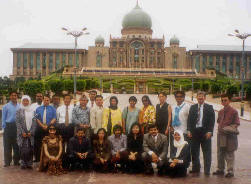
Visit to Putrajaya near Kuala Lumpur, Malaysia. 2001
Institute of Developing Economies Advanced School (IDEAS)
Institute of Developing Economies, Japan External Trade Organization
JETRO, or the Japan External Trade Organization, is a government-related organization that works to promote mutual trade and investment between Japan and the rest of the world. JETRO's core focus in the 21st century has shifted toward promoting foreign direct investment into Japan and helping small to medium size Japanese firms maximize their global export potential. The Institute of Developing Economies (IDE), an administrative unit of JETRO, conducts research on economic, political and societal issues in developing economies to support Japan's expansion of harmonious trade and investment and provision of international economic cooperation focused on developing economies.
IDEAS was founded in 1990 for the purpose of training front-line development specialists in the field of economic development and economic cooperation through award of fellowships.
Selected Overseas Fellow by IDEAS for a six-month program in development studies offered at the Institute in Chiba, Japan.
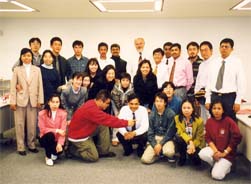
"Intensive Lecture Series" with Professor Norman Uphoff, Cornell University, USA. Chiba, Japan, 1999.
Dissertation: Trade policies and liberalization in Pakistan: Lessons from Japan
International Monetary Fund Institute Training Fellowship
IMF Institute’s mission is to provide training in macroeconomic analysis and policy to officials of IMF's member countries and Fund staff. The training of officials is delivered in four languages at the IMF headquarters in Washington, D.C. and in seven regional training programs worldwide.
Selected Training Fellow for course titled “financial programming & policies” offered at the Institute in Washington DC, USA.
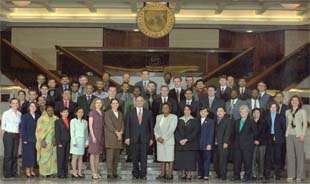
International Monetary Fund, Washington DC, USA. April 2002.
Open Society Institute and Soros Foundations Network
International Policy Fellowship (IPF) Program
The International Policy Fellowships (IPF) program identifies and supports individuals advancing innovative policy research in areas relevant to open society. The program also seeks to strengthen policy research communities in regions where the Soros network is active, and to integrate the work of the fellows into the activities both of the Soros foundations network http://www.soros.org/ and the Central European University in Budapest http://www.ceu.hu/.
"Selected IPF Fellow to conduct research on Pakistan's Devolution Plan and the newly established local government system".
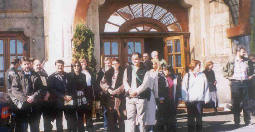
IPF Fellows outside Gellert Hotel, Budapest, Hungary. 2002.
Policy Study: Devolution Plan in Pakistan: Context, implementation and issues
Policy Paper: Devolution in Pakistan: Issues in implementation & options for reform
Policy Fellowship Program, Local Government and Public Service Reform Initiative
Established in 1997, LGI supports the OSI mission by working to promote democratic and effective local government and public administration, and by advancing policy analysis as a tool for decision making in public affairs. LGI supports governmental reform, in collaboration with its civil society partners, by monitoring and benchmarking government performance on the one hand and providing analytical and technical support to government on the other.
LGI's fellowship program supports practical policy reform in the region, builds the capacities of individuals who are well placed to influence policy, creates networks of multinational experts, and supports the mission of LGI.
Each year LGI selects talented professionals from Central, East and South-East Europe and the former Soviet Union to participate in the one-year program. Fellows work in small teams under the guidance of a well-respected mentor to produce policy-oriented studies on a given topic. The completed studies are impact oriented; each contains an advocacy or implementation strategy and concrete policy recommendations. LGI provides its fellows with training on how to write effective policy reports, how to formulate an effective advocacy campaign, and how deliver a persuasive policy presentation. At the conclusion of the program LGI works with its fellows to determine what steps it can take to support the proposed recommendations in the completed studies. Fellows are generally policy researchers, policy advisors, civil servants and members of NGOs, advocacy groups or professional associations.
Selected Policy Fellow by Local Government and Public Service Reform Initiative (LGI) to conduct research on taxation of informal economies in Pakistan.
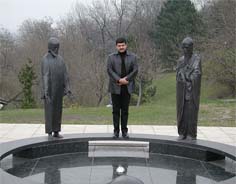
Peace and Harmony, Budapest, Hungary.
Center on Democracy, Development and Rule of Law
Freeman Spogli Institute of International Studies
Stanford University, USA
The Center on Democracy, Development and Rule of Law is committed to both academic and practical research that can illuminate the causes of governance failures and understand how development, democracy, and rule of law can be promoted.
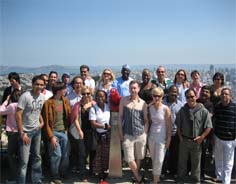
Visit to San Francisco, August 2006
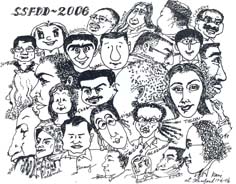
Credit: SSFDD Fellows 2006 as viewed by Kavi Chongkittavorn.
Selected Stanford Fellow on Democracy and Development offered at Stanford University, California, USA.
Summer University Fellowship, Central European University
Established in 1996, CEU's Summer University program hosts high-level, research-oriented, interdisciplinary and innovative academic courses as well as workshops on policy issues for professional development in the social sciences and the humanities. Courses involve distinguished international faculty (including CEU professors), and excellent advanced doctoral students, junior or post-doctoral researchers, teachers and professionals as participants. While application from all over the world is encouraged, continued priority is given to applicants from Central and Eastern Europe, the former Soviet Union and countries experiencing emerging democracies worldwide. Applicants from these countries, when admitted on merit, will be eligible for scholarship. The program is unique in its diversity of faculty and student body as well as its academic offerings. It brings together groups of interested individuals to study together intensively for two or three weeks in Budapest coming from an enormously varied geographical, cultural and academic background. Participants have been accepted into the program from 99 different countries ranging from East and Central Europe and the former Soviet Union to countries of Asia, Africa, North America and South America. The courses are taught by a team of teachers who also represent a wide range of countries in an effort to match the diversity of the student body. Professors have come from approximately 54 different countries from the region as well as mostly from Western Europe and America. This exciting multi-cultural composition of the courses provides a stimulating environment for engaging participants and faculty in an inspiring and enriching dialogue during the summer school.
Selected to participate in the following courses offered in Budapest, Hungary along with merit-based scholarship.
United Nations Center for Regional Development (UNCRD)
United Nations Centre for Regional Development (UNCRD) conducts research and training in local and regional development targeting developing and transitional economies. The Centre's programs are focused on socially and environmentally sustainable development. Research themes cover human security, environment, and disaster management which serve as guides for the Centre's training and research activities.
Each year, UNCRD organizes International Training Course in Regional Development (ITC) to provide mid-career professionals from Asia, Africa, Latin America, the Middle East, and the Pacific Islands with the knowledge and skills necessary for regional development plan formulation and implementation. The course aims to enable participants to deepen their understanding of sustainable regional development in consideration of human security and environmental issues. The ITC also provides participants with exposure to ideas and experiences of various countries at their respective development stages including Japan and also the opportunity to learn from one another. UNCRD provides continuous support for the implementation of individual action plans and is currently creating a training alumni network for mutual exchange.
Selected fellow to attend 30th ITC held in Nagoya, Japan.
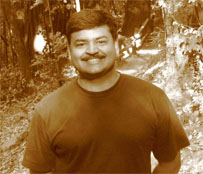
Photo Saad Paracha